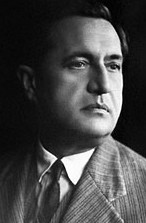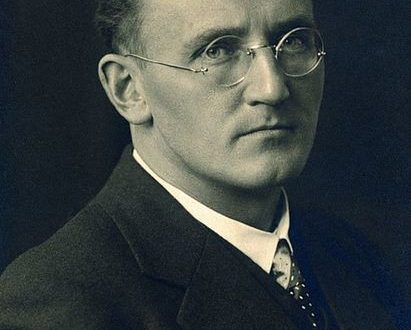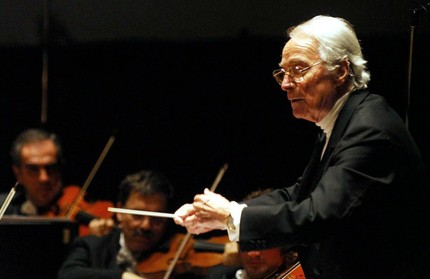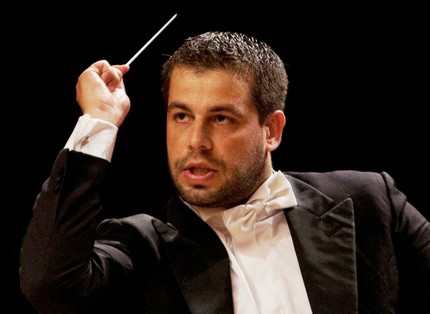
Václav Talich |
Vaclav Talich

Vaclav Talich played an outstanding role in the development of the musical culture of his country. His activities, covering the entire first half of our century, left an indelible mark on the history of Czechoslovak music.
The conductor’s father, a well-known teacher and composer Yan Talikh, was his first teacher. In his youth, Vaclav Talich performed as a violinist and in 1897-1903 he studied at the Prague Conservatory, in the class of O. Shevchik. But after a few months with the Berlin Philharmonic and playing in chamber ensembles, he felt the urge to conduct and soon almost left the violin. The first performances of Talikh the conductor took place in Odessa, where in 1904 he led the local symphony orchestra, and the Czech musician spent the next two years in Tiflis, taught violin at the conservatory, participated in chamber ensembles and conducted in concerts, and especially successfully – works Russian music.
Returning to Prague, Talikh worked as a choirmaster, became close to outstanding musicians – I. Suk, V. Novak, members of the Czech Quartet. Talikh becomes a convinced propagandist of the works of his contemporaries. But the inability to get a job forces him to leave for Ljubljana for several years, where he conducts operas and concerts. Along the way, Talih continues to improve, taking lessons from A. Nikisch in Leipzig and A. Vigno in Milan. In 1912, he finally managed to get a job in his homeland: he became the conductor of the opera house in Pilsen, but after some time he was again out of work. However, the authority and fame of the artist were already so great that soon after the independence of Czechoslovakia, Talik was invited to lead the Czech Philharmonic Orchestra.
The period between the two world wars is the era of the highest flowering of the artist’s talent. Under his leadership, the orchestra grew unrecognizably, turning into a well-coordinated team capable of fulfilling the conductor’s plans, learning any, the most complex compositions with great speed. The Prague Philharmonic, led by Talich, toured in Italy, Hungary, Germany, Austria, England, Belgium, France, everywhere winning great success. Talich himself became the first Czech conductor to achieve worldwide fame. In addition to directing his orchestra, he toured extensively in all European countries (including the USSR), for some time he also led orchestras in Scotland and Sweden, taught a class at the Prague Conservatory and the School of Excellence. His energy was enormous: he founded choral concerts at the Philharmonic, organized the Prague May music festivals. In 1935, Talich also became chief conductor of the Prague National Theatre, where each performance under his direction was, according to critics, “at the level of a premiere”. Talich conducted here almost all classical Czech operas, works by Gluck and Mozart, Beethoven and Debussy, he was the first to stage a number of works, including “Juliet” by B. Martin.
Talih’s creative range was very wide, but the works of Czech authors – Smetana, Dvorak, Novak and especially Suk – were closest to him. His interpretation of the cycle of poems “My Motherland” by Smetana, “Slavic Dances” by Dvořák, Suk’s string serenade, Novak’s Slovak suite became a classic. Talikh was an excellent performer of Russian classics, especially Tchaikovsky’s symphonies, as well as Viennese classics – Mozart, Beethoven.
After Czechoslovakia was occupied by the Germans, Talih left the leadership of the Philharmonic, and in 1942, in order to avoid a trip to Berlin on tour, he underwent an operation. Soon he was actually suspended from work and returned to active artistic activity only after his release. For some time he again directed the Czech Philharmonic and the Opera House, and then moved to Bratislava, where he led the Chamber Orchestra of the Slovak Philharmonic, and also conducted the Grand Symphony Orchestra. Here he taught a conducting class at the Higher School of Music, raising a whole galaxy of young conductors. Since 1956, Talikh, seriously ill, finally left artistic activity.
Summing up the noble activity of V. Talikh, his junior colleague, conductor V. Neumann wrote: “Vaclav Talikh was not only a great musician for us. His life and his work prove that he was a Czech conductor in the full sense of the word. Many times he opened the way to the world. But he always considered work in his homeland the most important task of his life. He interpreted foreign music superbly – Mahler, Bruckner, Mozart, Debussy – but in his work he concentrated primarily on Czech music. He was a mysterious wizard who kept his secrets of interpretation, but he willingly shared his rich knowledge with the younger generation. And if today the art of Czech orchestras is recognized all over the world, if today they talk about the inalienable features of the Czech performing style, then this is the success of the educational work of Vaclav Talich.”
L. Grigoriev, J. Platek





